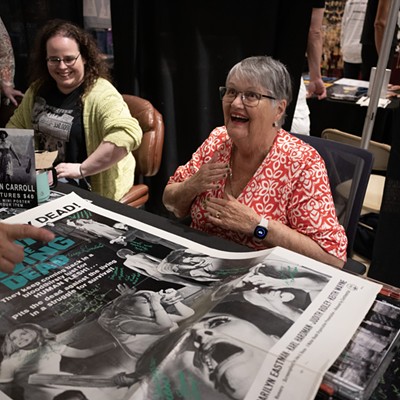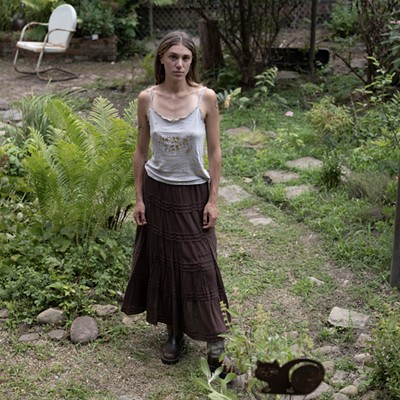Constructing their days, even their diets, around show times year-round are a cross-section of mad cinephiles: Bill Heidbreder, who packs peanut-butter sandwiches for a day of film-going (preference: modern Euro art cinema) and who posits, a la Truffaut, "Film is a form of living"; Harvey Schwartz, whose love for collecting soundtrack LPs is undiminished by his lack of a record-player; Eric Chadbourne, who seems to value all movies equally, even the most "B" horror; Roberta Hill, the only woman of the bunch, whose passion once drove her to strangle a ticket-taker; and Jack Angstreich, a sharply intelligent fellow who is thoroughly aware he's got an obsession but feeds it anyway, occasionally up to five times daily.
And their obsession (for better, or perhaps worse) is pure: None of the five write about or teach film, nor appear to have any professional interest in it (all are unemployed, and unmarried, too). They recognize movies are not reality, and they have emotional reactions (deep ones) to film. But is it out of sheer pleasure or some deeper need that they are drawn like moths to the flames of Fassbinder retrospectives, Italian classics and Breakfast at Tiffany's?
Co-directors Angela Christlieb and Stephen Kijak follow their subjects from their natural habitat of darkened theaters to typically cramped apartments. Politely, filmmakers probe film-watchers, who regard cinema as their "destiny" or "vocation," and who at moments eloquently express the seductive power of cinema: Jack, for instance, admits he's escaping reality, but argues, "[T]here's no reason why reality should be privileged." Impolitely, film-watchers probe each other, Jack smilingly accusing Bill of an inability to discriminate among films, and elsewhere wondering aloud if residents of the mostly male land of cinephilia wouldn't be happier if more of them were gay.
From the opening credits on, though, Christlieb and Kijak also poke at us, the audience-audience for their audience-subjects. Regularly the filmmakers remind us that we too are watching a movie, right up through the final, concisely postmodern scene, in which our cinemaniacs view and comment upon a rough cut of the film about them. Unexpressed, but strongly implied: The audience that is us may laugh at these movie nuts if it wants, pity them if it must, but it should probably reserve at least a reel's worth of insight for itself.














